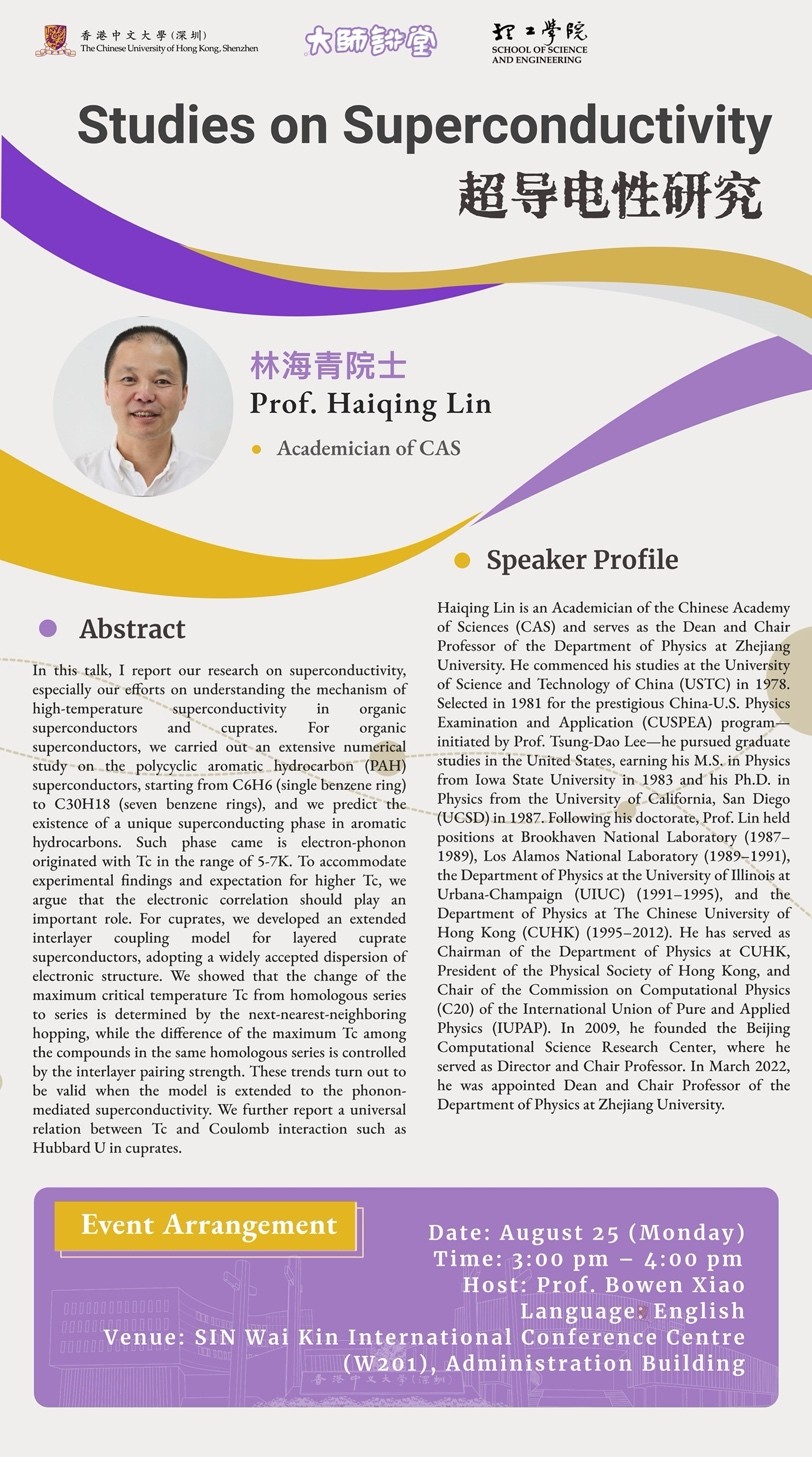【Master Forum】Studies on Superconductivity
Topic: Studies on Superconductivity
Speaker: Prof. Haiqing Lin
Host: Prof. Bowen Xiao
Date: Monday, August 25, 2025
Time: 3:00 p.m. - 4:00 p.m.
Venue: SIN Wai Kin International Conference Centre (W201), Administration Building
Language: English
Abstract:?
In this talk, I report our research on superconductivity, especially our efforts on understanding the mechanism of high-temperature superconductivity in organic superconductors and cuprates. For organic superconductors, we carried out an extensive numerical study on the polycyclic aromatic hydrocarbon (PAH) superconductors, starting from C6H6 (single benzene ring) to C30H18 (seven benzene rings), and we predict the existence of a unique superconducting phase in aromatic hydrocarbons. Such phase came is electron-phonon originated with Tc in the range of 5-7K. To accommodate experimental findings and expectation for higher Tc, we argue that the electronic correlation should play an important role. For cuprates, we developed an extended interlayer coupling model for layered cuprate superconductors, adopting a widely accepted dispersion of electronic structure. We showed that the change of the maximum critical temperature Tc from homologous series to series is determined by the next-nearest-neighboring hopping, while the difference of the maximum Tc among the compounds in the same homologous series is controlled by the interlayer pairing strength. These trends turn out to be valid when the model is extended to the phonon-mediated superconductivity. We further report a universal relation between Tc and Coulomb interaction such as Hubbard U in cuprates.
Speaker Profile:
Haiqing Lin is an Academician of the Chinese Academy of Sciences (CAS) and serves as the Dean and Chair Professor of the Department of Physics at Zhejiang University. He commenced his studies at the University of Science and Technology of China (USTC) in 1978. Selected in 1981 for the prestigious China-U.S. Physics Examination and Application (CUSPEA) program—initiated by Prof. Tsung-Dao Lee—he pursued graduate studies in the United States, earning his M.S. in Physics from Iowa State University in 1983 and his Ph.D. in Physics from the University of California, San Diego (UCSD) in 1987. Following his doctorate, Prof. Lin held positions at Brookhaven National Laboratory (1987–1989), Los Alamos National Laboratory (1989–1991), the Department of Physics at the University of Illinois at Urbana-Champaign (UIUC) (1991–1995), and the Department of Physics at The Chinese University of Hong Kong (CUHK) (1995–2012). He has served as Chairman of the Department of Physics at CUHK, President of the Physical Society of Hong Kong, and Chair of the Commission on Computational Physics (C20) of the International Union of Pure and Applied Physics (IUPAP). In 2009, he founded the Beijing Computational Science Research Center, where he served as Director and Chair Professor. In March 2022, he was appointed Dean and Chair Professor of the Department of Physics at Zhejiang University.
His research focuses on condensed matter theory and computational physics, with significant contributions to quantum many-body theory, computational methods, quantum phase transitions and entanglement, and the theory of surface plasmons in nanoparticles. He was elected a Fellow of the American Physical Society in 2003 in recognition of his contributions to the development and application of computational methods for quantum many-body systems, and was elected as an Academician of the Chinese Academy of Sciences in 2019.
?






